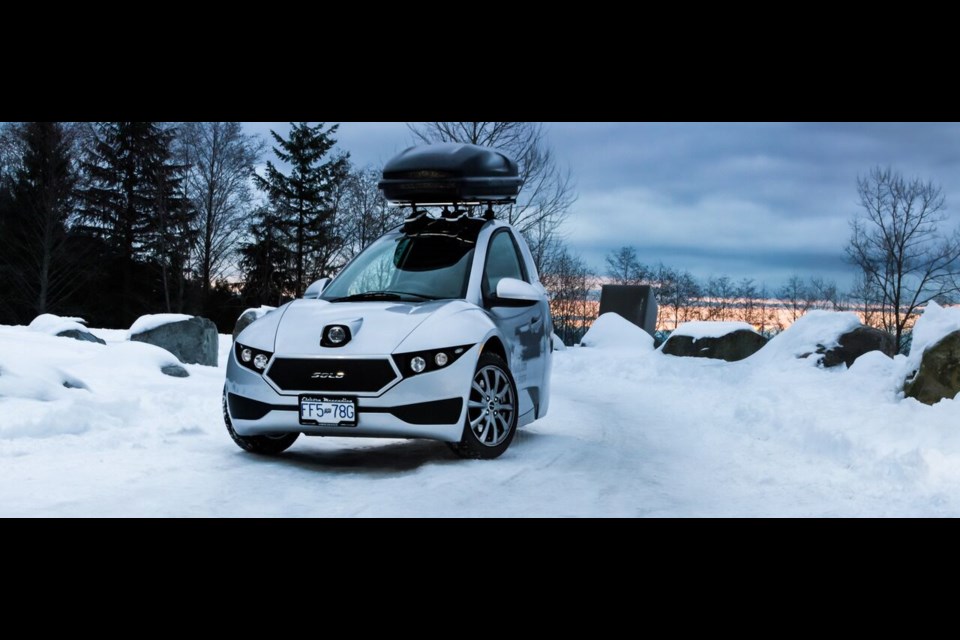Transportation is the single largest source of greenhouse gases (GHGs) comprising 39 percent of our emission, According to the BC government.
Electric vehicles provide one affordable answer to help address this challenge.
At the 2016 Vancouver Auto Show, attendees had the chance to test drive the new Chevy Bolt electric vehicle (EV). Impressive not only for its performance, acceleration and 380 plus kilometer range, it also offers regenerative braking that charges the battery instead of wearing out brake pads. Because the electric motor has so few moving parts, operation and maintenance costs are a fraction of a traditional internal combustion engine vehicle.
Priced in the mid-$40,000 range, the Bolt was the first EV to seriously challenge the range and performance of the Tesla Model S ($180,000 plus) and new Model 3 ($45,000 plus).
What makes the electric motor so compelling is its efficiency — about four times more efficient than the average internal combustion engine. There are 36.6 kWHrs of energy in a U.S. gallon of gasoline. So the Bolt, with its 60 kWhr battery, requires less than the equivalent of two U.S. gallons to travel 380 kilometres.
I visited some local Squamish dealerships in the summer of 2016, and what a disappointment. No battery EVs were available to view or test drive, and the only hybrids I found were non-plug-in hybrids with limited electric range. And a Bolt would take 18 to 24 months for delivery.
Last week, I repeated my Squamish dealership rounds and wow, what a difference. Local GM dealer Greg Gardner now has some Chevy Bolts both on the dealership's website and available for test drives, plus Chevy Volt ($45,000) plug-in hybrid electric vehicles. The Volt has an electric-only range of 80 kilometers and boasts a gas range extender — a gas generator that powers the electric motors and recharges the battery. It can also be charged at home or a growing number of public chargers.
As Gardner, who is very bullish on the EV future explains: "People in Squamish aren't interested in waiting months before getting an EV, they want to test-drive and buy it today."
The accelerating shift to electric vehicles is nothing short of impressive. In 2017, to challenge Tesla dominance, some large auto manufacturers announced new EV and plug-in hybrid electric vehicles including Mercedes Benz, Volkswagen, BMW, Audi as well as some smaller manufacturers including Vancouver-based Electra Meccanica.
Currently, Electra Meccanica has a backlog of more than 20,000 paid reservations for its three-wheeled Solo commuter EV ($20,000) and more than 40,000 reservations for the fully electric Tofino sports car, according to company CEO and race driver Jerry Kroll.
I spoke with Kroll about getting a Solo to Squamish for a test-drives (fingers crossed). The Solo, with a range of 160 kms, makes good sense here. With its 17.3 kWHr battery, a Solo commute to Vancouver would use less energy than contained in half a gallon of gas.
Once dominated by environmental enthusiasts aiming to reduce emissions, a growing number of EV buyers today are more focused on performance and saving money than on cutting emissions: the EV environmental benefits are more a happy coincidence than a primary motivator for many.
And let's face it, B.C. has a serious challenge in meeting our mandated CO2 reduction goals.
The good news is that as the costs for EVs and plug-in hybrid electric vehicles fall and the offerings of cars grow, the day is rapidly approaching when they will not only cost less to buy, but EV maintenance will be significantly lower than traditional internal combustion engine vehicles.
So, why would anyone pay a premium for an expensive and high maintenance gas-powered vehicle?
For more on current incentives to transition to electric, go to pluginbc.ca/incentives/vehicle-incentives/
**Editor's note: Matt Blackman is the founder of the Squamish Alternative Energy Group. He is also a publicist, financial market analyst, and writer.




